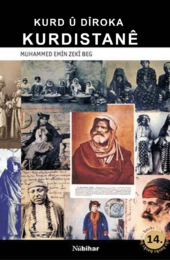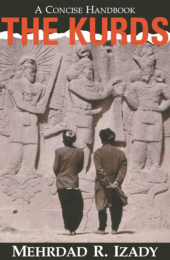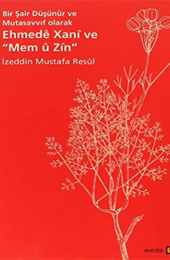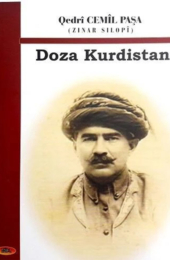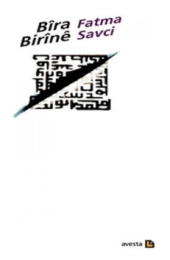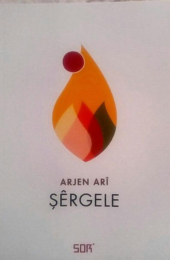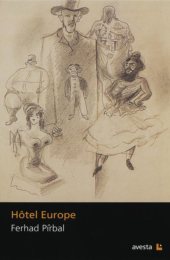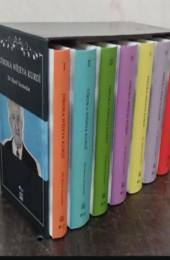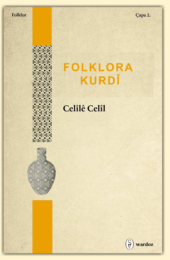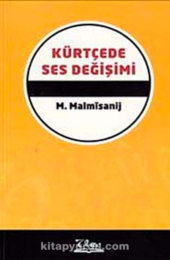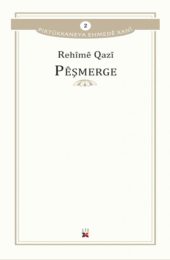Kurd û Dîroka Kurdistanê
Mehmed Emin Zeki Beg (1880-1948) was born in Süleymaniye, Ottoman Empire, and his father was Hacı Abdurrahman, engaged in tobacco trade. He excelled academically during his education [2]. As an Ottoman military officer, he played a significant role in Kurdish history and diplomacy. Zeki Beg's life is documented in "Kürtler ve Kürdistan Tarihi" (Kurds and Kurdistan History) [1][4]. His story reflects the complexities of the Kurdish experience during the early 20th century, combining military service and diplomatic contributions [3][5].
Stars: M. Emîn Zekî Beg
Kurds: A concise handbook
- M. Emîn Zekî Beg and Kurdish Boundaries (1931): M. Emîn Zekî Beg, an Iraqi Kurdish statesman, played a crucial role in delineating Kurdish boundaries while serving as the Minister of the Economy in the first Nuri as-Said government. This historical moment is outlined in the context of Kurdish history in Iraq[1].
- Şeref Xan's Sharafnama (Late 16th Century): The Sharafnama, authored by Şeref Xan, provides a critical analysis of Kurdish ethno-politics during the late sixteenth century. This historical text contributes to our understanding of the early modern world and the legacy of Kurdish history[4].
- Modern Kurdish Poetry (20th Century): The emergence of modern Kurdish poetry is a significant milestone in Kurdish literature, responding to the advent of modernity and nationalism in Kurdish society[5][6].
These key points highlight pivotal moments and figures in the history of the Kurds, offering insights into their socio-political and cultural evolution.
Stars: Mehrdad Izady
Ehmedê Xanî
Ehmedê Xanî and Mem û Zin are subjects of the book "Bir Şair Düşünür ve Mutasavvıf olarak Ehmede Xanî ve Mem û Zin" by İzzeddin Mustafa Resul [1]. This work explores Ehmedê Xanî's role as a poet and mystic. İzzeddin Mustafa Resul draws on experiences from labor camps, providing a unique perspective influenced by the Stalin era [2]. For more insights into İzzeddin Mustafa Resul's thoughts, one can refer to his quotes on various platforms, including 1000Kitap [3]. The book serves as a valuable resource on Ehmedê Xanî's significance in Kurdish culture [4].
Stars: Izedîn Mistefa Resûl
Doza Kurdistan
- Doza Kurdistan - Qedrî Cemîlpaşa is a book authored by Zinnar Silopi (also known as Kadri Cemilpaşa). It addresses the Kurdish cause and the struggle for liberation over 60 years, providing historical insights into the plight of the Kurdish people [2][6].
- The book is available for purchase, with details provided on various online platforms such as pirtukakurdi.com and dr.com.tr [1][3][4][6].
- For more details about Kadri Cemilpaşa, the author, you can refer to the Wikipedia page titled Kadri Cemilpaşa [5].
Dersim in the Kurdish History
Nuri Dêrsimî, also known as Mehmed Nuri Dersimi, played a significant role in Kurdish history, particularly during the Dersim rebellion. Here's a concise overview:
- Background:
- Nuri Dêrsimî (1893-1973) was born in Akzunik, Dersim (now Tunceli) [2].
- He was a Kurdish writer and revolutionary.
- Dersim Rebellion:
- Contributions:
- Nuri Dêrsimî's involvement reflected the broader Kurdish resistance during a crucial period in Kurdish history.
In summary, Nuri Dêrsimî was a key figure in the Dersim rebellion, contributing to the Kurdish struggle against the central government's oppression in the early 20th century.
Narratives of Statelessness and Political Otherness
Narratives of Statelessness and Political Otherness
Statelessness Impact: The book "Narratives of Statelessness and Political Otherness" by Barzoo Eliassi explores how statelessness influences identity, homelessness, belonging, and the experiences of otherness. It delves into the complexities of stateless individuals, examining issues like non-belonging and voices within marginalized communities[1][2].
Kurdish and Palestinian Experiences: The book specifically focuses on the Kurdish and Palestinian experiences of statelessness, offering insights into the everyday life challenges faced by those who are stateless and marginalized[3].
Citizenship Critique: It argues that citizenship is an inadequate solution to the statelessness problem, emphasizing a critical investigation of the lived experiences of stateless individuals[4][6].
Comprehensive Exploration: The narrative explores various facets of statelessness, including identity formation, homelessness, belonging, otherness, and the limitations of citizenship as a remedy[5].
Bîra Birînê
Bîra Birînê" is a collection of poems by Fatma Savci, a Kurdish poet. The title translates to "Memory of Birin" . Fatma Savci's poetry, including "Bîra Birînê," is rooted in the Heskîf tradition and is part of her third poetry book.
Labirenta Cinan
Labirenta Cinan: A Brief Overview
Content and Language:
"Labîrenta Cinan" is a paperback in Kurmanji language (Northern Kurdish) authored by Hesenê Metê.
About the Author:
Hesenê Metê is the author of "Labirenta Cinan," and his works include board books like "LABİRENTA CİNAN".
Şêrgele
"Şêrgele Arjen Arî" refers to a Kurdish poem written by Arjen Arî. The poem celebrates the courage and strength of the lion, symbolizing bravery and resistance. The word "Şêrgele" translates to "lion" in Kurdish. Arjen Arî's work often explores themes of resistance and resilience against oppression, with the lion serving as a powerful metaphor.
Hinara Dawî yaDinyayê
- "Hinara Dawî ya Dinyayê" is a book by Bextiyar Elî, published by Avesta Yayınları .
- The book is in Kurdish, with 352 pages and dimensions of 0.39 x 5.31 x 7.68 inches .
- Bextiyar Elî is the author of several books, and "Hinara Dawî ya Dinyayê" is one of his works .
- Bextiyar Elî's writings encompass diverse topics, contributing to Kurdish literature .
- "Hinara Dawî ya Dinyayê" reflects elements of Realîzma Efsûnî in its narrative
Hotêl Ewrûpa
"Hotêl Ewrûpa Ferhad Pîrbal" is a novel written by Ferhad Pîrbal, a Kurdish author who sought refuge in Paris from Iraqi persecution in the 1980s
The book is titled "Europa Hôtel" and was published in 2019 by Maurice Nadeau, with translations by Gaspard Karoglan and Arthur Quesnay .
The story revolves around a Kurdish narrator in Paris, particularly in the Montmartre area, working in a hotel named Hôtel Europe .
Conclusion: "Hotêl Ewrûpa Ferhad Pîrbal" is a poignant novel depicting the experiences of a Kurdish refugee in Paris, reflecting on themes of displacement and adaptation.
Mêjûy Edebî Kurdî
Mêjûy Edebî Kurdî Maruf Xeznedar refers to the literary magazine or periodical titled "مێژووى ئهدهبى کوردى / Mêjûy edebî Kurdî" created by Maruf Xeznedar (Marif Khaznadar) .
Maruf Khaznadar (1930–2010) was a contemporary Kurdish academic and writer, born in Erbil . He authored works such as "Le Babet Mêjûy Ede bi Kurdiyewe," a significant contribution to Sorani Kurdish literature.
His literary contributions include "Mêjûy Edebî Kurdî (1801-1850)" and other writings, reflecting his dedication to Kurdish literature.
The magazine is written in Kurdish, particularly in Sorani Kurdish.
folklora kurdî
Celîlê Celîl: A Kurdish historian and Kurdologist, born in Yerevan to a Yazidi Kurdish family in 1936.
Contributions: Celîlê Celîl has dedicated decades to studying and writing about Kurdish folklore. His work includes numerous books on Kurdish folklore, making significant contributions to the understanding of Kurdish cultural heritage. "Dîdarok û Qewlikên Zarokan" and "Zêmar" are among his notable works on Kurdish folklore. Celîlê Celîl has left a lasting impact on the understanding and preservation of Kurdish cultural heritage through his extensive work in folklore. His contributions continue to be recognized, and his books remain valuable resources for those interested in Kurdish folklore and cultural history. Celîlê Celîl's dedication has significantly enriched the appreciation of Kurdish heritage.
Kürtçede Ses Değişimi
In Kürtçe (Kurdish), like any language, phonetic changes occur over time and space. "Kürtçede Ses Değişimi" (Phonetic Changes in Kurdish) by M. Malmisanij explores these linguistic transformations. The book emphasizes that language, being dynamic, evolves with shifts in time and place, impacting various aspects, particularly in phonetics. For those intrigued by the subject, "Kürtçede Ses Değişimi" offers valuable insights into the dynamic nature of the Kurdish language.
Pêşmerge
Pêşmerge Rehîmê Qazî" refers to the Kurdish novel written by Rehîmê Qazî titled "Pêşmerge." The novel is a significant work in Kurdish literature, portraying the struggles and heroic deeds of the Kurdish Pêşmerge (guerrilla fighters) through a narrative rich in Kurdish cultural elements .
Rehîmê Qazî wrote "Pêşmerge" in Kurmanji Kurdish, using the Roman script . The novel was first published in 1958, marking an early contribution to Kurdish literature. Rehîmê Qazî's work gained recognition for its portrayal of Pêşmerge fighters during a critical period in Kurdish history .
